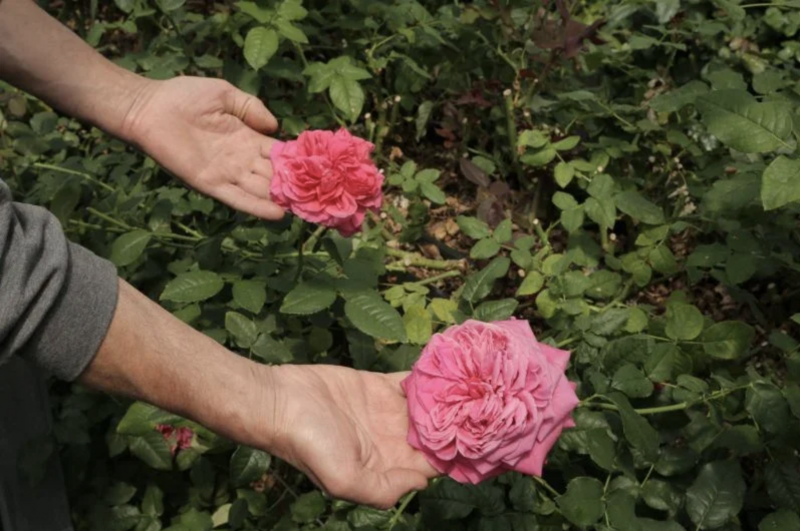
Flowers and florists color Beirut's sad streets. (Credit: MIchèle Aoun)
Le Mikado
Antoine Skayem doesn’t recall when exactly his father Georges and his aunt Laure opened Le Mikado, 50 meters from today’s store on Salim Bustros Street in Achrafieh.
“It was nearly 100 years ago if I’m not mistaken. We were Beirut’s first florists,” he said.
“My older brother Toufic was a student at La Sagesse at the time, and in history class, the students were asked to each choose the name of an emperor. My brother chose to be called Mikado, which was the ancient world used for emperors in Japan. My parents found the word amusing, and my father, who had a dry-cleaning business before that, chose to call his flower store Le Mikado,” he said.
From the beginning, Le Mikado was more than just a florist. Georges Skayem grew on several hectares of land in Antoura all the flowers and plants he would sell in his tiny shop on Salim Bustros Street, which overflowed and spread out onto the sidewalk.
To do so, he employed nearly 200 farmers and land workers. “The land was so beautiful, the plantations so spectacular that the Meouchi patriarch would often go for a walk there,” recounted Skayem. He was forced to drop out of school to take over his father’s business, who fell seriously ill in 1962.
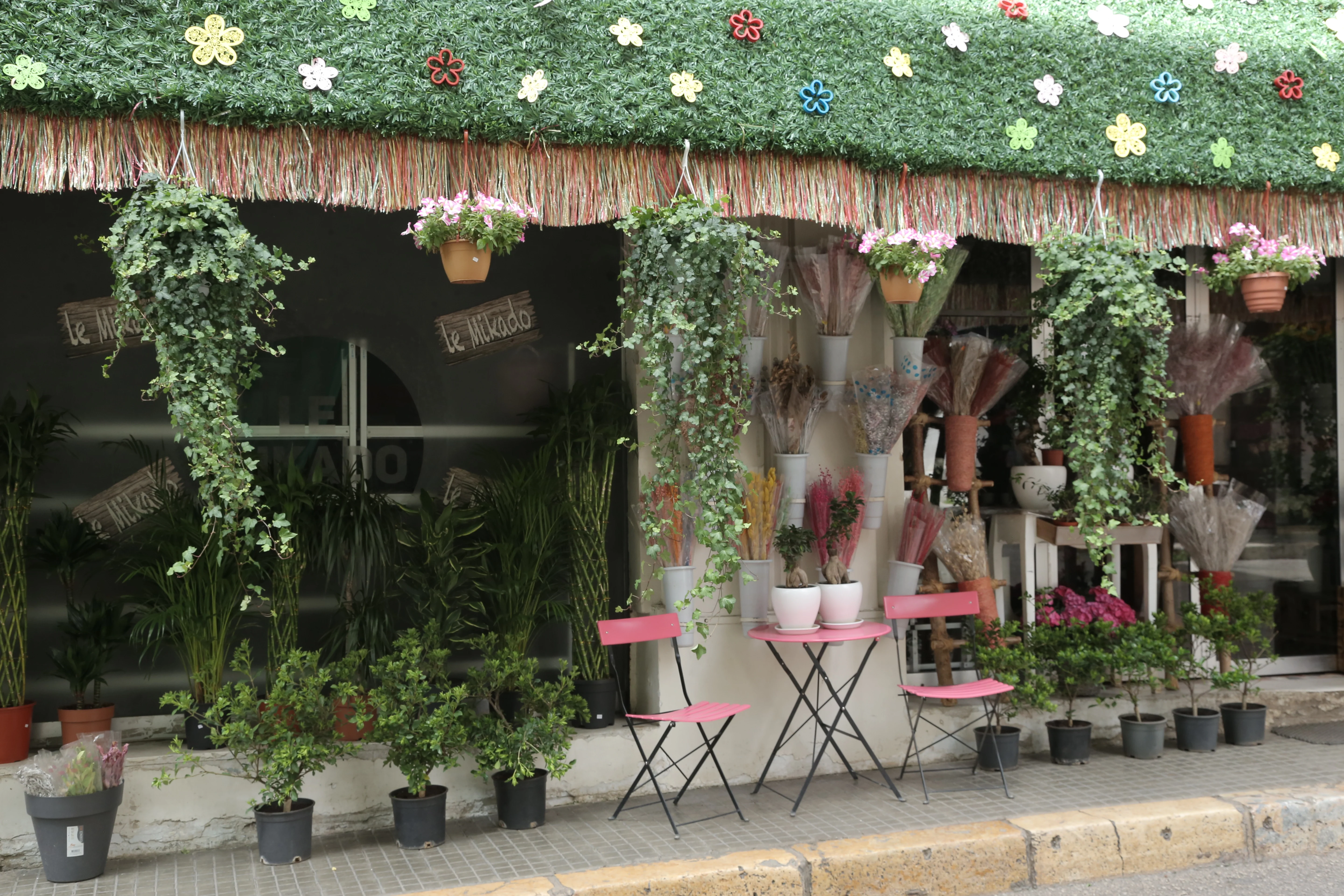 The Mikado, rue Salim Bustros, Achrafieh. (Credit: Michèle Aoun)
The Mikado, rue Salim Bustros, Achrafieh. (Credit: Michèle Aoun)
“I took over the family business when I didn’t know how to read or write. I was a child. When I turned 20, I wanted to expand the business by importing goods. Because I had no command of a foreign language, a friend of mine, Maher Jabado, offered to make the trip with me to act as a translator. That’s how I expanded my range, with flowers from Europe and Saudi Arabia,” he said.
In the pre-war years, then in the war years, Le Mikado quickly became part of the landscape and social fabric of Achrafieh. It became one of the landmarks of daily life. Like a piece of a village in the heart of the city, the tiny store — which somehow managed to display every possible flower in every possible shade — accompanied the people of Achrafieh on their good and bad days. To this day, Salim Bustros Street is more often referred to as “Le Mikado Street."
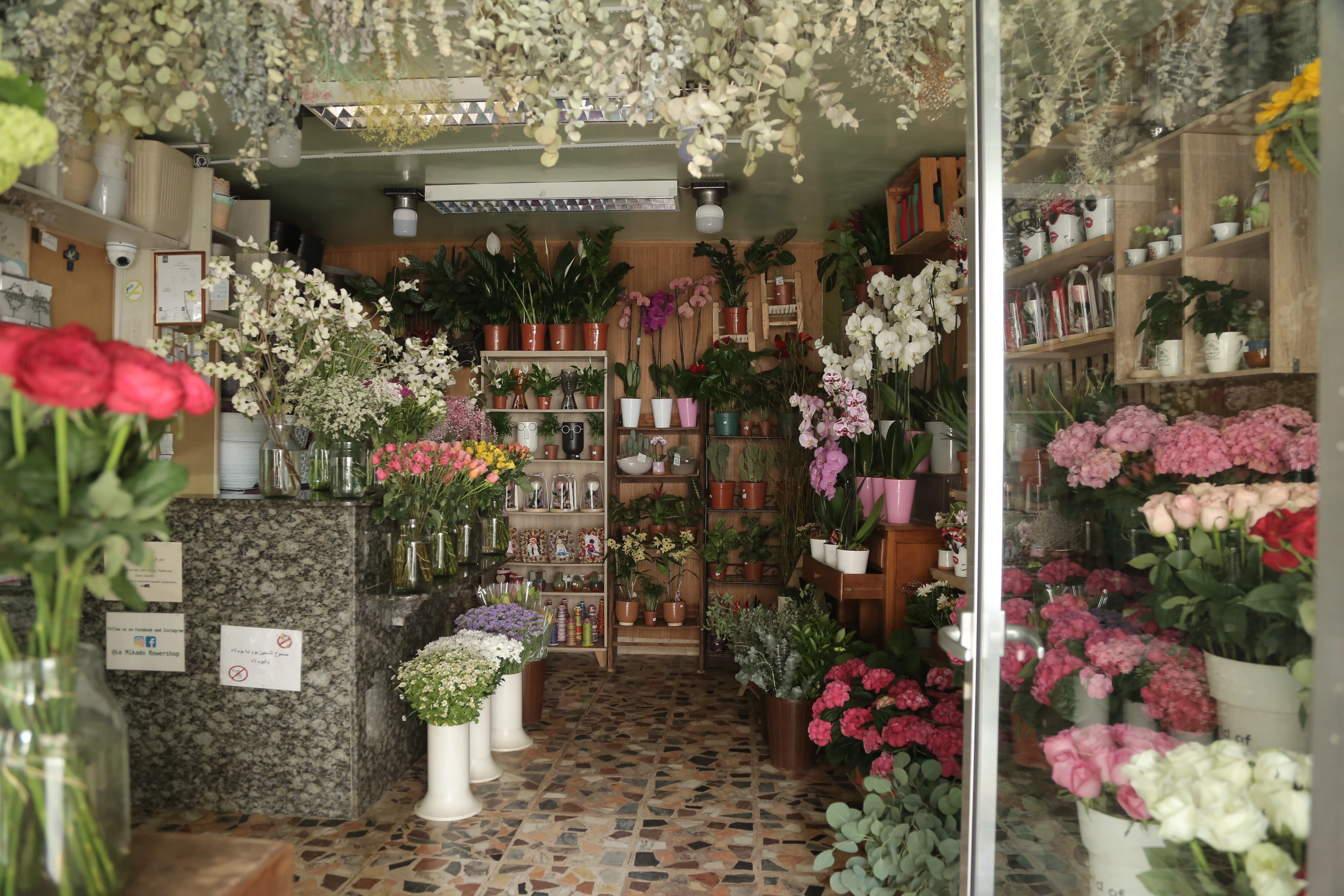 The establishment was founded in 1924. (Credit: Michèle Aoun)
The establishment was founded in 1924. (Credit: Michèle Aoun)
“Our humble shop had become a pillar of the neighborhood. I remember the day my daughter was born, during the war. They called me from the hospital to tell me I owed them LL2,000. I didn’t have the money. Times were difficult. By chance, Gebran Tueni passed by the store and saw me in distress. I told him what it was all about and in no time, he purchased all the stock on display and made a big order of plants for the An-Nahar offices that had just been set up a little further on. He gave me an extra LL500 as a gift. That’s how I got by,” said Skayem.
Although crises and competition have dealt a heavy blow to the flower emperor of Achrafieh, and Le Mikado had to stop importing its flowers in 2005 causing its business activity to decline, the shop remains mythical. Between its roses, geraniums and carnations, it cultivates the faded memory of Beirut.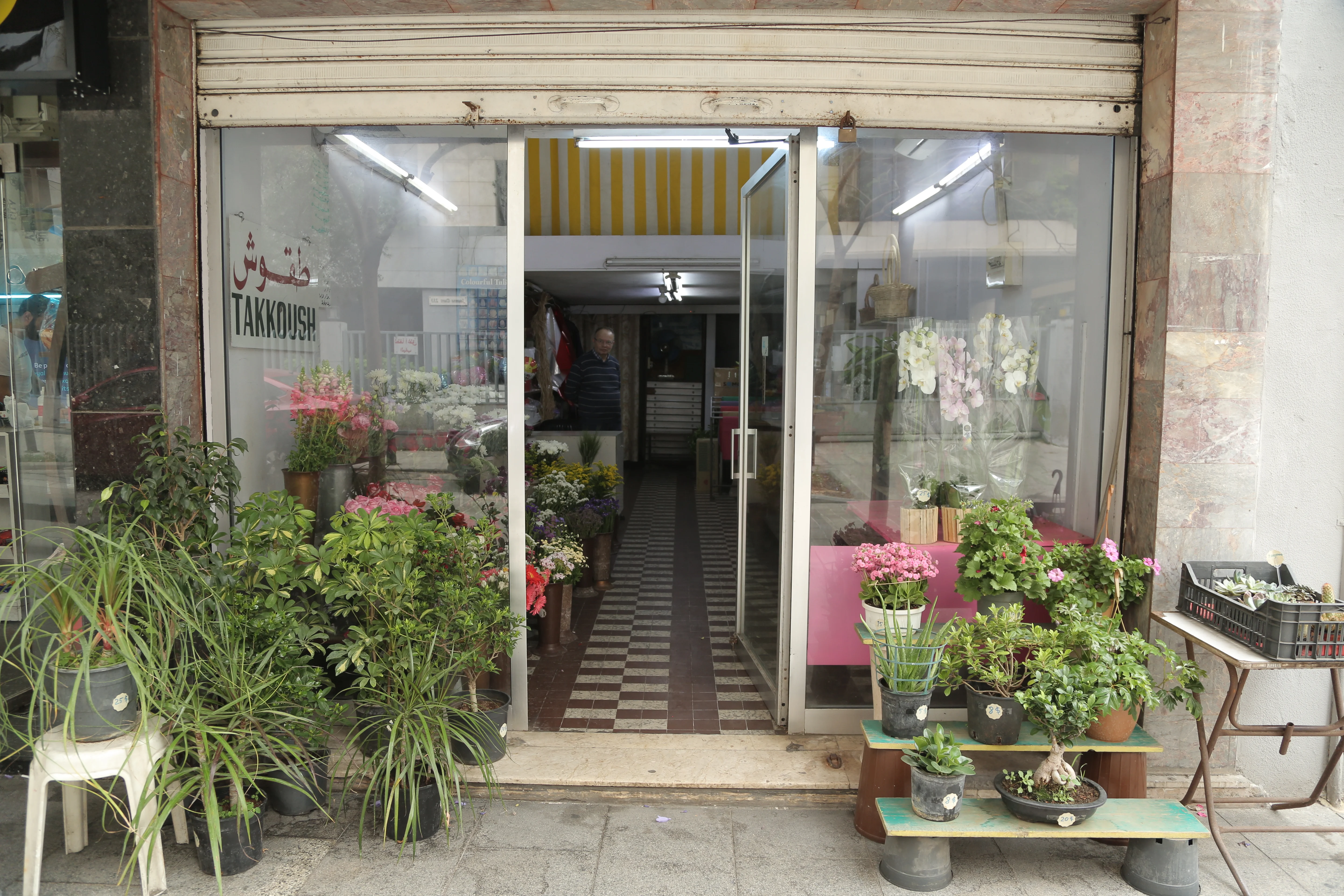 Takkoush, a family story in Hamra. (Credit: Michèle Aoun)
Takkoush, a family story in Hamra. (Credit: Michèle Aoun)
Takkoush Flowers
In the early 1960s, Ibrahim Takkoush sold lingerie in Beirut’s Hamra neighborhood where he is from. One day, an American woman visiting Beirut came into the lingerie store. As they spoke, she advised Takkoush to open a flower shop instead.
“It was a sector that had a lot of potential, especially since the few flower businesses were only located in Souk al-Franj, downtown,” said Khalil Takkoush, Ibrahim’s son.
“This was how my father opened his first store on Sadat Street, which he called California: Takkoush, in a nod to the American customer.”
The success was such that Yehya joined his brother Ibrahim in his business and then opened his own flower shop, just a few steps away, on the same sidewalk.
Lebanon was then in the midst of its so-called golden age, and Beirut’s residents in particular, in contact with Westerners who were flocking in droves, began to embrace their lifestyle and habits. One of them was to offer flower bouquets on all occasions — a concept hitherto uncommon here.
 Khalil Takkoush in front of his store. (Credit: Michèle Aoun)
Khalil Takkoush in front of his store. (Credit: Michèle Aoun)
In those pre-war years, not a birth, hospital visit, wedding or funeral went by without a floral bouquet or plant from Takkoush, with the little red and gold sticker that Khalil Takkoush still places on the packaging.
“Initially, my father and uncle only sold seasonal flowers, until a customer from the Bulgarian Embassy in Beirut described to my uncle the nurseries in his country. After getting the Lebanese government’s authorization, the Takkoushs became the first Lebanese wholesalers of flowers and plants imported from Bulgaria, the Netherlands and Belgium,” said Zakaria Takkoush, Yehya’s son, and current owner of one of the family business’ branches, located where the first store was opened.
 Flowers that smell like spring. (Credit: Michèle Aoun)
Flowers that smell like spring. (Credit: Michèle Aoun)
During the Civil War, the family business was severely affected, because flower orders never arrived due to the airport shutting down. Foreign nationals fled and the Lebanese were not in the mood to celebrate. However, the second generation of the Takkoush family, notably Ibrahim and Zakaria, managed to keep their shops going.
Today, almost 60 years later, the two cousins and a dozen others whose stores have blossomed across Hamra preserve a slow, human way of doing things in their old-fashioned shops. Their flowers, more beautiful than ever in April, are fragile and ephemeral, like a metaphor for this city.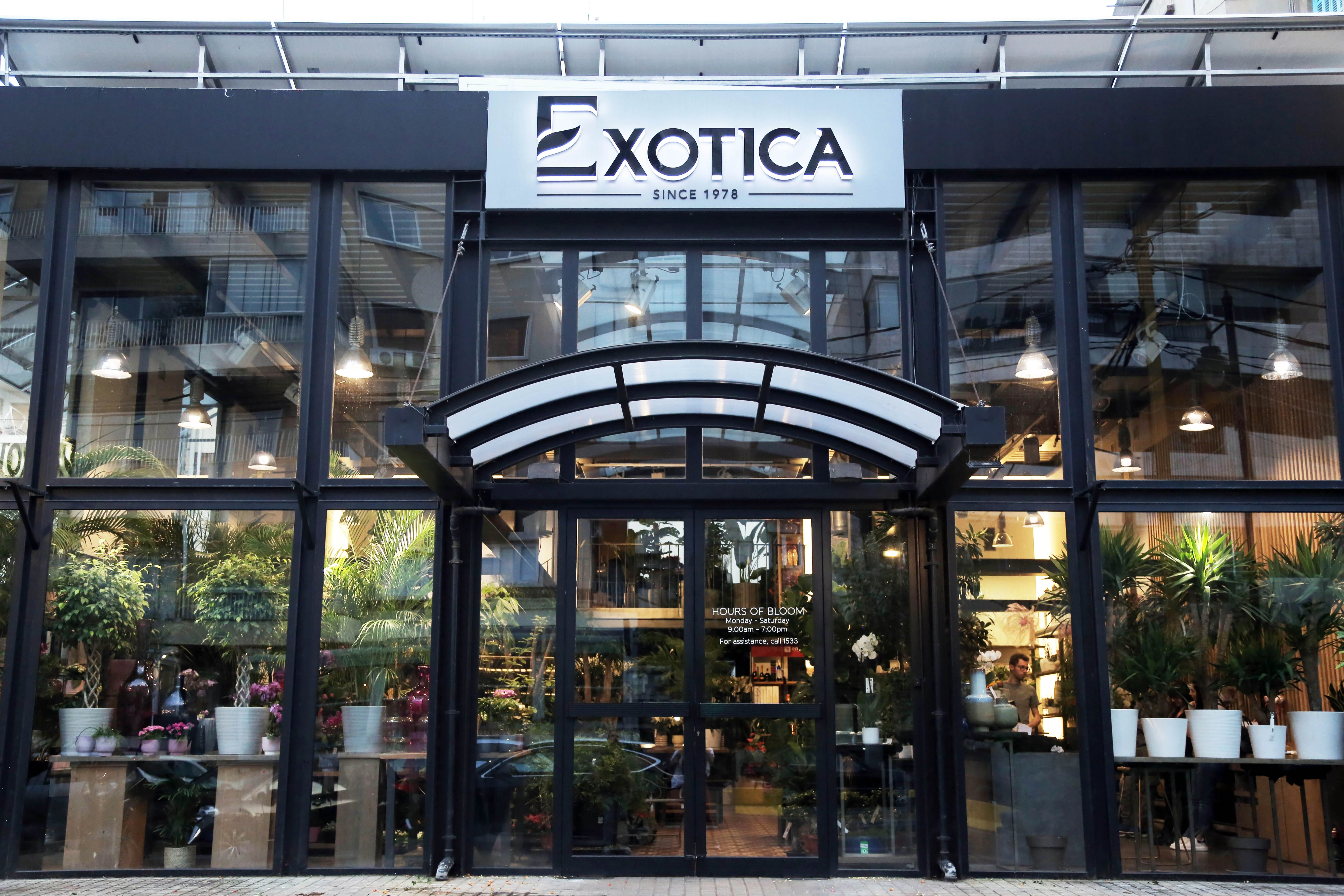 Exotica, a true success story. (Credit: Michèle Aoun)
Exotica, a true success story. (Credit: Michèle Aoun)
Exotica
The first Lebanese success story in the flowers, plants, landscaping and horticulture sectors is that of Exotica. Founded in 1978 by landowner and agricultural entrepreneur Etienne Debbaneh, the company quickly became a leader in the Lebanese market.
In addition to the opening of its first store and nursery in Zalka in 1978 — followed by three branches in Verdun, Achrafieh and Kaslik in the 1980s —, Exotica’s flowers, plants and landscaping services are sold all over the Middle East, including in Kuwait (until the first Gulf War), Dubai and Abu Dhabi (where the company still exists today), Qatar, Egypt, Saudi Arabia and Canada.
“We have been pioneers in the sector, through this expansion strategy,” said Marc Debbaneh, the company’s CEO since 2018. “To this day, despite all the challenges, we’re the only ones in the planting and retailing business.”
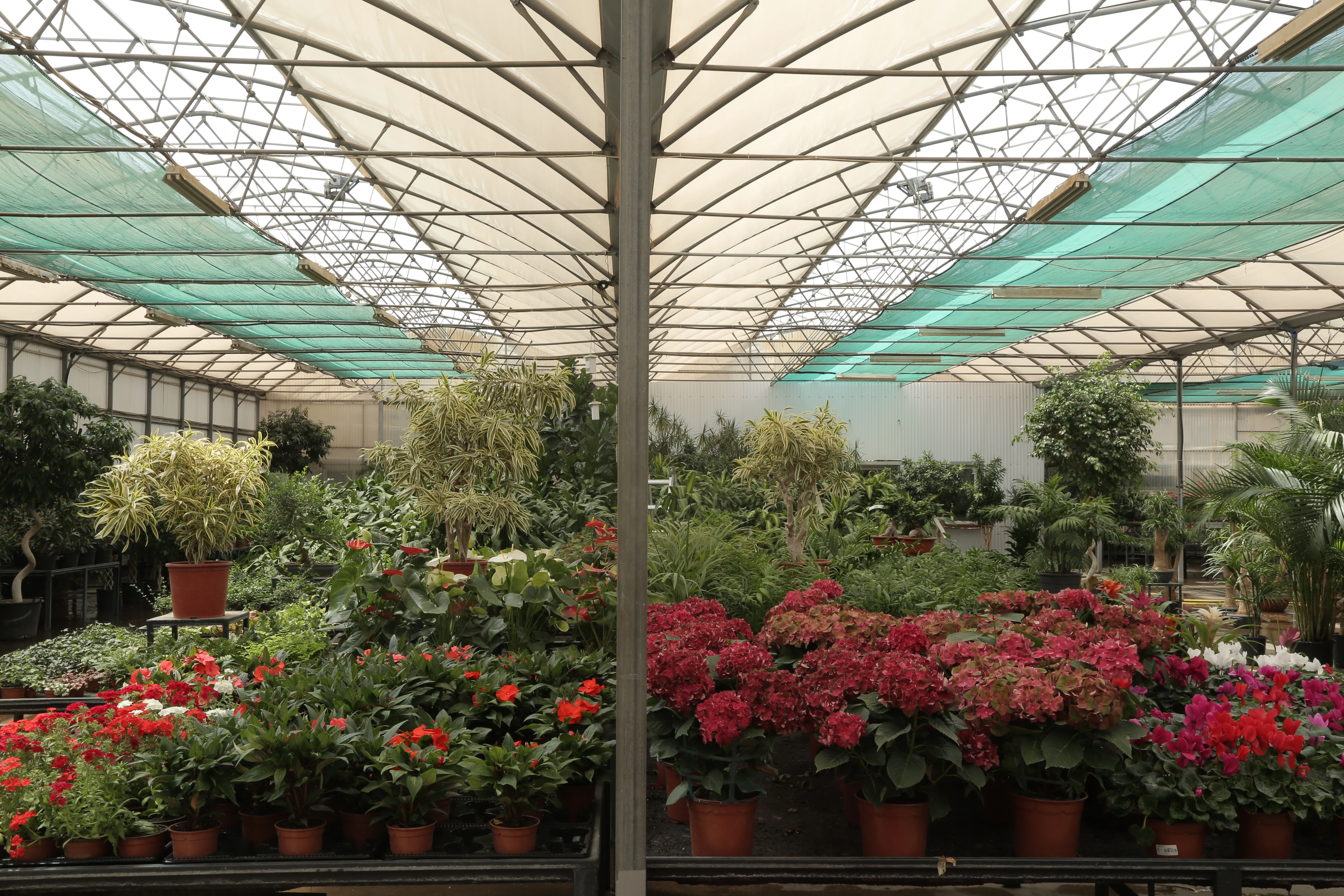 Nursery and boutiques are the key to the brand's success. (Credit: Michèle Aoun)
Nursery and boutiques are the key to the brand's success. (Credit: Michèle Aoun)
One only has to visit Exotica’s nursery, behind their showroom in Jounieh, to appreciate the caliber of this big machine, which at its peak employed 350 horticulturists and salespeople. In what looks like a hothouse field in the middle of town, millions of roses that Exotica sells annually are planted with care and respect.
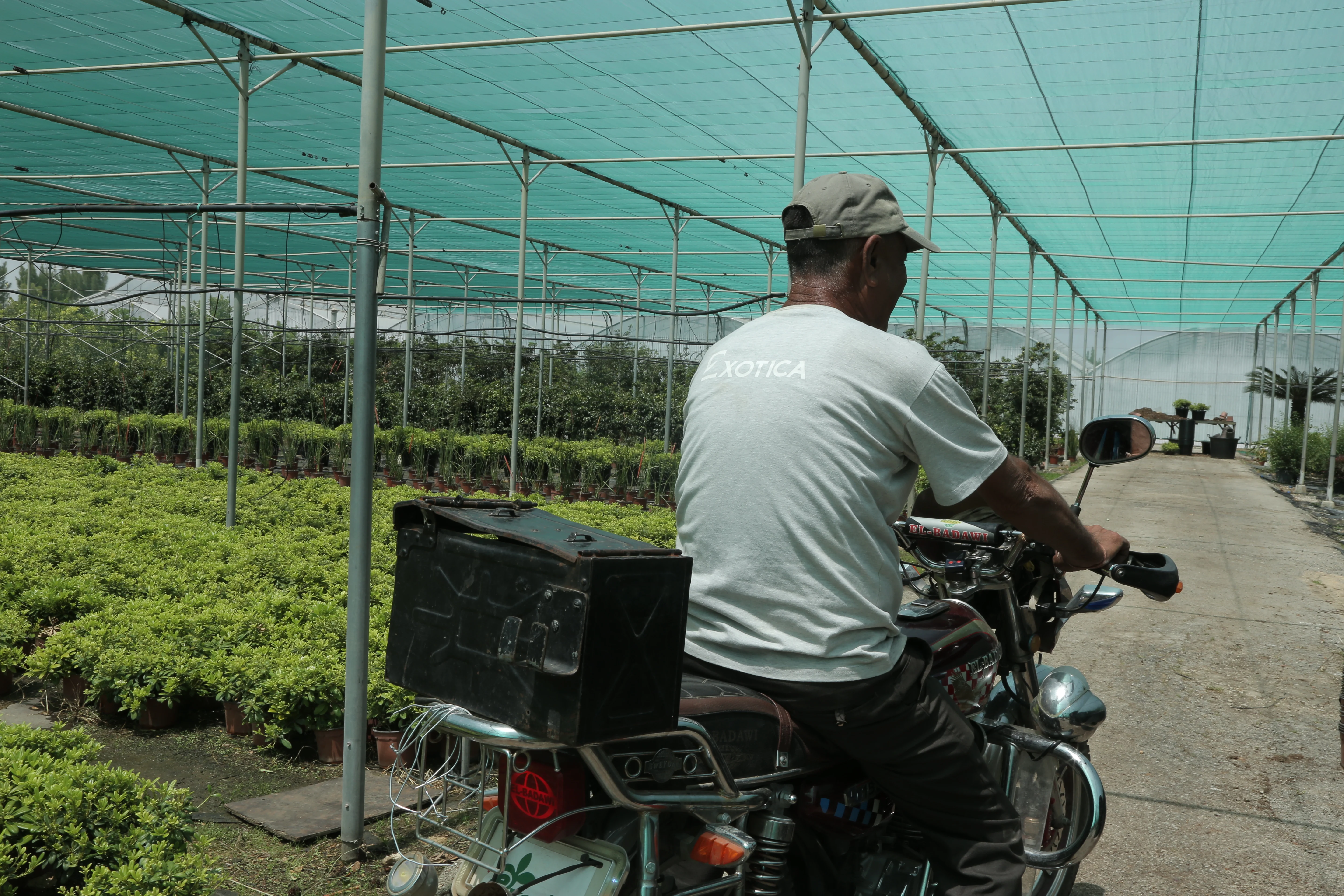 Wholesale and retail sales. (Credit: Michèle Aoun)
Wholesale and retail sales. (Credit: Michèle Aoun)
“We also have land plots in Jezzine where we grow other more exotic varieties of flowers such as our hydrangeas and peonies, but also all our foliage,” said Debbaneh. “The idea, as we expanded, was to offer a holistic approach to horticulture, landscaping, event decoration and home flower and garden maintenance.”
As a resolutely luxury florist, there are few bourgeois homes in the country where Exotica’s plants haven’t intruded, during the war and afterward, on festive and sad occasions. It’s no doubt for this reason that Exotica remains a cult florist for some Lebanese people.
This article was originally published in L'Orient-Le Jour. Translated by Joelle El Khoury.